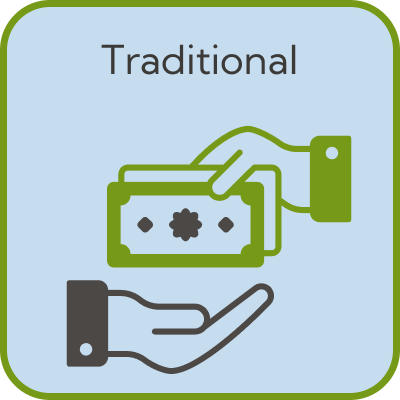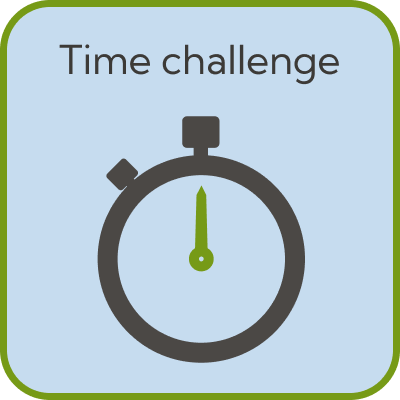Fundraise by participating in Self-organised fastest Rubik’s cube solve challenge!
Self-organised fastest Rubik’s cube solve challenge
Imagine hosting your own fastest Rubik’s Cube solve challenge to raise funds for a charity close to your heart. In this self-organised event, your task is to solve a Rubik’s Cube as quickly as possible, capturing the attention of donors and spectators who can sponsor your attempts either per solve or for achieving a new personal best time.
This type of event is a fantastic idea for charitable fundraising because it blends skill, entertainment, and competition—all ingredients that can significantly boost donor interest and involvement. The visual and dynamic nature of a Rubik’s Cube solve challenge makes it ideal for live streaming, allowing you to engage with a wider audience and potentially increasing the number of donations. Moreover, the personal challenge aspect appeals to donors who enjoy seeing feats of skill and dexterity, providing a clear and exciting goal to sponsor.
To organize this event effectively, start by setting a clear goal for your fastest solve and practice vigorously to improve your skills. You'll also need to decide whether the challenge will be just one attempt or multiple attempts within a set time frame. Next, promote your event through social media platforms and personal networks to gather as much support as possible. Leverage tools like live streaming on platforms such as YouTube, Twitch, or Facebook Live to broadcast your challenge, making it accessible for supporters to watch and donate in real-time. Finally, ensure you have a reliable way to record and verify your solving times, possibly with a timekeeper or digital system that donors can trust.
For such an event, two Sponsivity challenge types would be particularly effective: the Time Challenge and the Wager Challenge. The Time Challenge is well-suited because your sponsors can pledge donations based on how quickly you can solve the cube. For example, a sponsor could pledge a certain amount of money if you beat your record or solve the Rubik’s Cube under a specific time. On the other hand, the Wager Challenge can raise the stakes by setting a high fundraising goal that, if met, would see you attempting to break a personal or world record. This challenge type would capitalize on both the spectacle and the significant achievement of solving the Rubik’s Cube at record speeds, encouraging larger donations for the thrill of seeing a big payoff.
By combining your skill in solving the Rubik’s Cube with a structured fundraising approach, your challenge can turn a personal hobby into a powerful tool for good, generating enthusiasm and financial support for any cause you are passionate about.

Sponsivity offers you several ways to raise for Self-organised fastest Rubik’s cube solve challenge


🧠 Mental Challenge – Pushing Limits for a Good Cause
Mental challenges test focus, resilience, and determination, making them a unique and engaging way to fundraise. These challenges often involve problem-solving, endurance under pressure, or personal restrictions, such as memory feats, puzzle marathons, or digital detoxes. Fundraising through mental challenges allows participants to showcase their mental strength and discipline, inspiring supporters to donate.
Why Mental Challenges Work for Fundraising:
- Highly Inclusive: Unlike physical challenges, mental challenges can be attempted by anyone, regardless of fitness level.
- Great for Social Engagement: Challenges like chess marathons, escape room events, or language-learning goals are easy to share and track online.
- Endurance & Dedication: Tasks that test patience and willpower—like 24-hour challenges—demonstrate commitment, motivating donors to give.
- Unique & Entertaining: Creative challenges stand out, making them highly shareable on social media and drawing attention to the cause.
Examples of Mental Challenge-Based Fundraisers:
- Memory Challenge: “I’m memorizing 500 digits of Pi—sponsor me to support dementia research!”
- Endurance Puzzle Challenge: “Help me complete 10,000 Sudoku puzzles in a month for charity!”
- No-Talking or Digital Detox Challenge: “Support my 48-hour silent retreat—every donation helps my cause!”
Mental challenges showcase creativity, discipline, and perseverance, making them a fun and inspiring way to raise money while pushing personal limits.
Set bespoke rewards that suit mental challenge
- Join me in my challenge for 1 day
- Get defeated by me at chess online during the challenge
📅 Self-Organised – Fundraising on Your Terms
Self-organised fundraising challenges put you in control, allowing fundraisers to create a challenge that’s unique, personal, and tailored to their passions. Unlike organised events, self-organised challenges offer complete flexibility—whether it’s a solo endurance test, a creative personal challenge, or a community-driven activity.
Why Self-Organised Challenges Work for Fundraising:
- Full Flexibility: Choose the activity, location, and timing that works best for you, making fundraising accessible and achievable.
- Personal & Meaningful: Custom challenges allow fundraisers to connect with their audience by choosing something significant to them.
- Low-Cost & Inclusive: Without the need for event entry fees or logistics, anyone can participate, making it easy to involve family, friends, or colleagues.
- Perfect for Challenge Chain & Wager Models: Self-organised challenges can inspire others to join in, spreading the impact through viral nominations.
Examples of Self-Organised Fundraisers:
- Personal Running Challenge: “I’ll run 5K every day for a month—support my journey!”
- DIY Fitness Marathon: “I’m doing 1,000 push-ups in a day—every donation pushes me further!”
- Creative Challenge: “I’ll cycle across the country dressed as a superhero—help me hit my fundraising goal!”
Self-organised challenges allow fundraisers to turn their creativity, passions, and dedication into real impact, making it a powerful and accessible way to raise money for a cause.
Set bespoke rewards that suit self-organised event
- Rename the challenge in your honour
- Bring home-baked cookies to the finishline